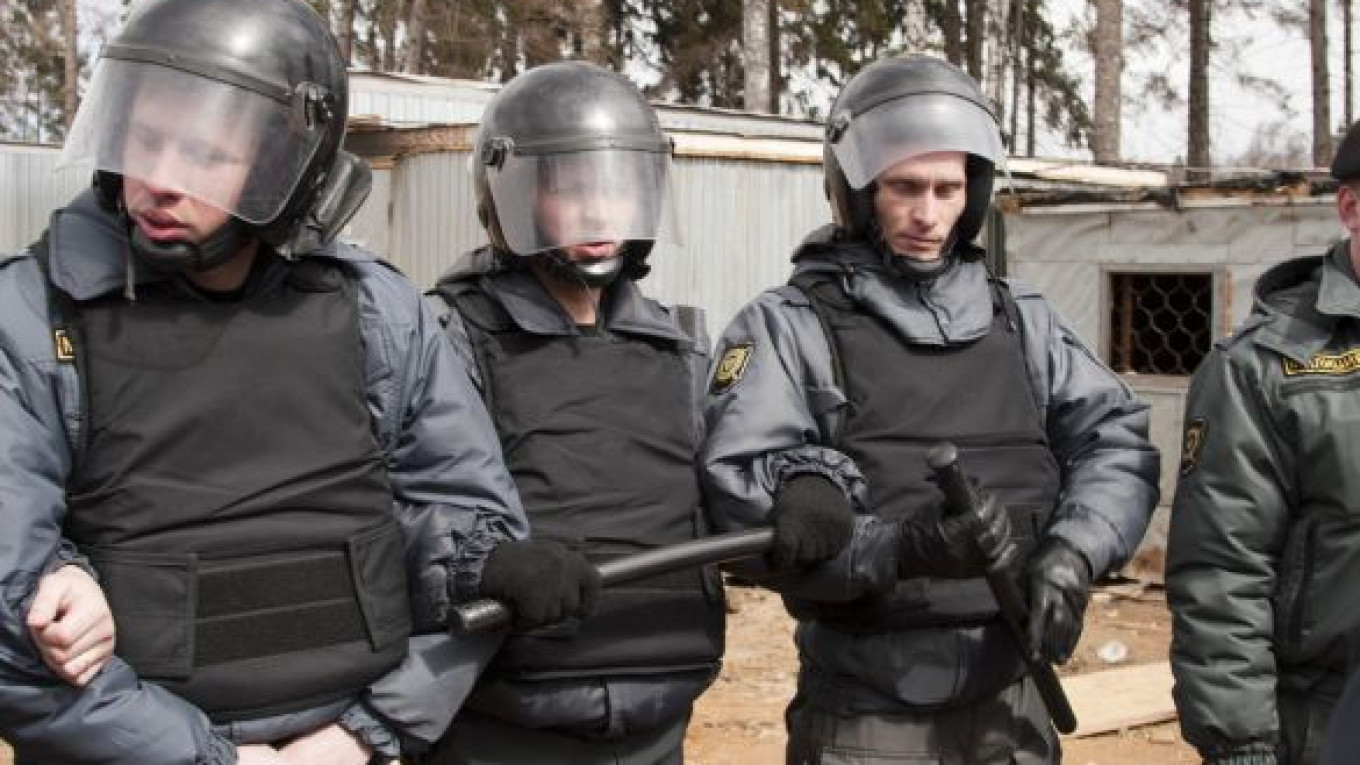Police in Volgograd have detained more than 700 people in an anti-terror sweep following two apparent suicide bombings that killed at least 34 people, Interior Ministry officials said.
The city remained on high alert, with increased security at bus and rail stations and "total inspections" of cars and trains arriving in the region, the Volgograd City Hall said in a statement on Thursday.
Police have received more than 50 calls from residents reporting suspicious objects and possible threats, the regional Interior Ministry said. But Russia's long New Year's holidays, a period of traditional massive drunkenness, have also stoked macabre pranks.
A man called to report he was planning to set off a bomb on a bus in a Volgograd suburb, prompting police to dispatch teams with bomb-sniffing dogs to bus terminals around the city, the Interior Ministry said in a statement on Thursday.
When investigators detained the caller, identified as a 24-year-old man with a prior criminal record, he told the police that he was drunk and placed his call on New Year's Day to "improve his mood," the ministry said. He faces up to three years in prison if convicted of making a fake bomb threat call, the ministry said.
More than 700 people were detained during the "whirlwind anti-terror" raid over the past days, including 12 fugitives and 70 suspects who were wanted by the police, an Interior Ministry official said, Interfax reported.
Officials have not linked any of the detainees to the bombings in a train station and a trolleybus on Dec. 29 and 30.
Some 300 people have sought psychological counseling in the aftermath of the bombings, a spokeswoman for the Volgograd governor's office said, Itar-Tass reported.
But in an apparent attempt to demonstrate that the situation was under control, the Russian authorities turned away a group of Russian-speaking Israeli experts on terrorism survivor counseling, whom they had previously invited to help Volgograd cope with the shock wrought by the bombings, Israeli-Russian news website Izrus reported.
A group of Israeli psychologists and social workers who arrived in? Russia on Jan. 1 were turned away at Moscow's Domodedovo Airport and told that their help was no longer needed, an unidentified official familiar with the case said.
Local officials supposedly were concerned that President Vladimir Putin, who also headed to Volgograd on New Year's Day and spoke with some of the victims in a hospital, would interpret outside help as a sign of his administration's weakness, the official said.
A police officer who died in the line of duty after stopping a suspected suicide bomber at the entrance to Volgograd's train station on Dec. 29 was buried with full honors on Thursday.
The officer, Dmitry Makovkin, is credited with preventing the bomber from entering the main hall of the station and saving many lives by thwarting what could have been a much more devastating explosion.
A Message from The Moscow Times:
Dear readers,
We are facing unprecedented challenges. Russia's Prosecutor General's Office has designated The Moscow Times as an "undesirable" organization, criminalizing our work and putting our staff at risk of prosecution. This follows our earlier unjust labeling as a "foreign agent."
These actions are direct attempts to silence independent journalism in Russia. The authorities claim our work "discredits the decisions of the Russian leadership." We see things differently: we strive to provide accurate, unbiased reporting on Russia.
We, the journalists of The Moscow Times, refuse to be silenced. But to continue our work, we need your help.
Your support, no matter how small, makes a world of difference. If you can, please support us monthly starting from just $2. It's quick to set up, and every contribution makes a significant impact.
By supporting The Moscow Times, you're defending open, independent journalism in the face of repression. Thank you for standing with us.
Remind me later.


